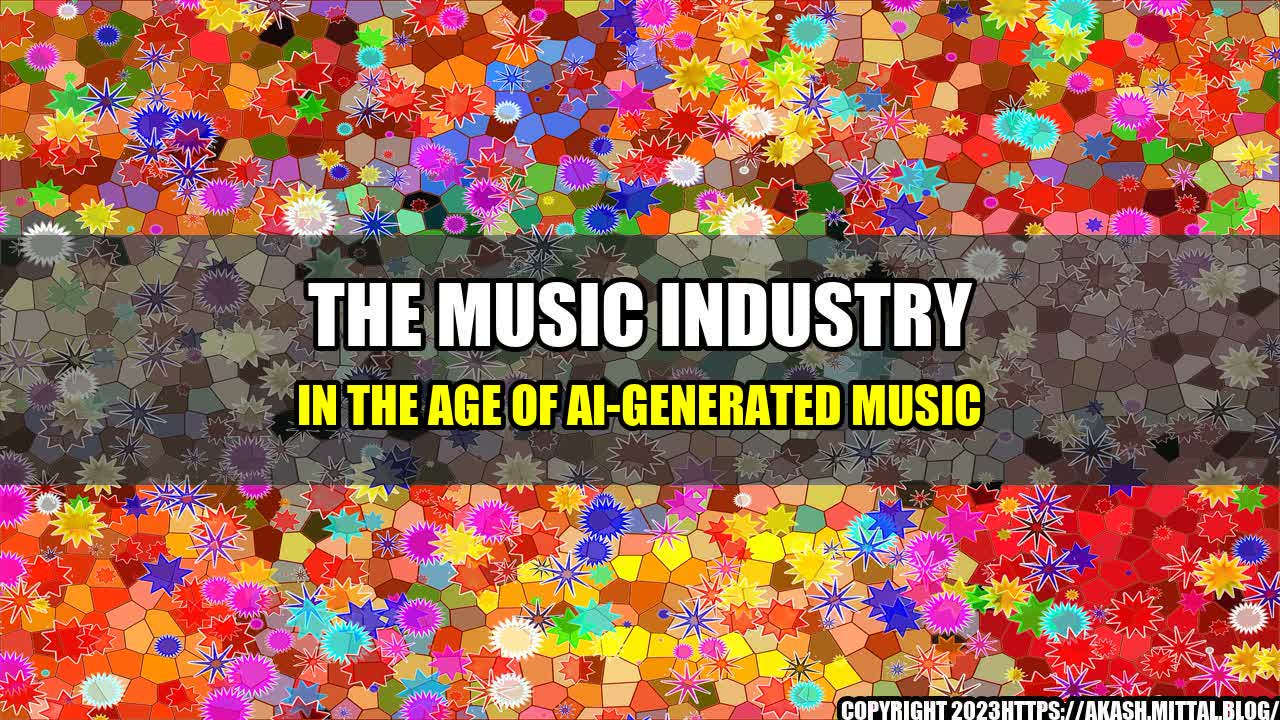
It was a cold winter evening in New York City when I first heard an AI-generated pop song on the radio. My initial reaction was disbelief - could a machine really create something that sounds like it was sung by a human? As the song progressed, I found myself nodding along to the catchy beat and singing along to the chorus. It was only after the DJ mentioned that the song was entirely created using artificial intelligence that I realized what I had just heard.
AI-generated music is now a reality, and it raises some serious questions for the music industry. With machines able to compose and produce music faster and cheaper than human musicians, what does the future hold for those who make a living from music?
One quantifiable example is the rise of Amper Music, a startup that provides AI-generated music for videos, games, and other media. By using algorithms to create music based on selected moods, genres, and instrumentation, Amper claims to offer customized, royalty-free music in minutes, for a fraction of the cost of hiring human musicians. As more businesses turn to AI-generated music to save money and time, it's clear that this trend isn't going away anytime soon.
Another example is the success of YouTube channels that feature AI-generated music, such as Taryn Southern and Ambezza. These channels have amassed hundreds of thousands of views and subscribers, demonstrating that there is a market for music created by machines. If these channels continue to grow and gain popularity, it's possible that AI-generated music could become a legitimate genre in its own right.
So, what can musicians do to compete with machines? One piece of advice is to focus on unique, creative collaborations that only human musicians can provide. For example, the Grammy-winning jazz pianist, Robert Glasper, has teamed up with an AI program to create a new kind of music that combines man and machine. By playing live improvisations on his piano, Glasper feeds data into the AI program, which then responds with new sounds and melodies. Together, they create music that is both human and computer generated, an exciting new frontier for musicians.
In conclusion, while the rise of AI-generated music poses a threat to the traditional music industry, it also presents opportunities for innovation and collaboration. Musicians who are able to adapt to this new landscape will be those who thrive in the years to come. Whether it's through unique collaborations, new genres, or simply embracing the power of technology, the future of music lies in the ability to balance the best of man and machine.
References:
- Amper Music: https://www.ampermusic.com/
- Taryn Southern: https://www.youtube.com/user/TarynSouthern
- Ambezza: https://www.youtube.com/channel/UCl4Ri9F0XCVbxPwyfsWb9VA
- Robert Glasper: https://www.rollingstone.com/music/music-news/robert-glasper-artificial-intelligence-851742/
Hashtags: #AIgeneratedmusic #digitalmusic #musicindustry #manvsmachine #musiccollaboration
Category: Technology/Music Industry
Curated by Team Akash.Mittal.Blog
Share on Twitter Share on LinkedIn